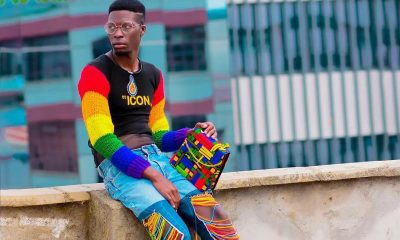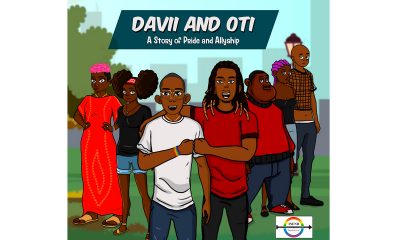Kenya
Petition demands Kenyan government stop discriminating against queer asylum seekers
Refugee Affairs Commissioner John Burugu’s recent comments criticized
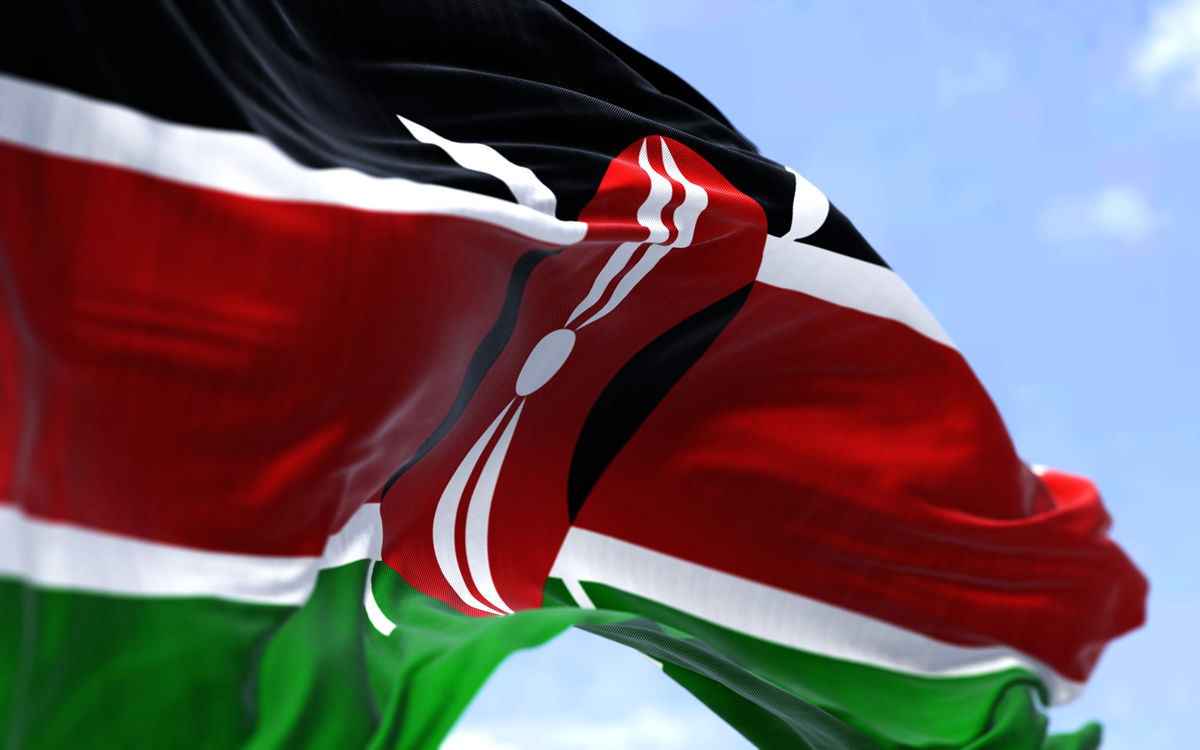
The queer community in Kenya has condemned the government’s policy of discriminating against LGBTQ asylum seekers, and has launched a petition that challenges it.
The community, through an All Out petition drive, accuses Kenya’s Department of Refugee Services of putting queer asylum seekers at more risk of “persecution, violence, and exploitation” by not recognizing them as afflicted refugees.
The action is in response to Refugee Affairs Commissioner John Burugu’s comments in an interview last month where he said Kenya would not consider persecution based on sexual orientation or gender identity as a direct pass to asylum.
Burugu during a telephone interview said “we are not interested in anyone’s sexual identity,” and his department will not be convinced that persecution based on sexual orientation or gender identity is sufficient grounds for admission as an asylum seeker or refugee.
The Kenya 2021 Refugees Act, which governs Burugu’s department in the admission of refugees and asylum seekers in the country, does not explicitly recognize queer people among vulnerable individuals fleeing persecution. The law only recognizes refugees or asylum seekers as people who are persecuted based on race, religion, nationality, political opinion, or membership of a social group.
Opposition MP George Kaluma’s proposed anti-homosexuality law also seeks the expulsion of LGBTQ refugees and asylum seekers from Kenya.
“Decision-makers like the Department of Refugee Services and UNHCR Kenya are failing to uphold international human rights standards while the media and major NGOs remain silent,” reads the petition.
It notes the exclusion of LGBTQ refugees has left the majority of them vulnerable to more trauma and isolation.
They can wait up to a decade for the department to issue a decision on their asylum applications. It typically takes 12 months to process asylum applications in Kenya.
The petitioners note this delay has also increased violence, discrimination, and persecution of queer asylum seekers by the public and government authorities without any legal protection.
“Historically, Kenya provided refuge for LGBTQ+ people fleeing danger, but the situation has worsened dramatically since 2017,” reads the petition. “From 2017, the government refused to process LGBTQ+ asylum claims, forcing over 400 people to flee to South Sudan in search of safety.”
This change is due to the U.N. Refugee Agency’s handing over the processing of asylum applications in Kenya to the government under the Department of Refugee Services in 2016.
UNHCR has admitted to slowing the processing of queer asylum seekers’ applications since surrendering the duty to the Kenyan government. It has asked the Department of Refugee Services to resolve the problem.
More than 200 people have signed the petition, which organizers hope to present to Kenyan and international human rights bodies that include UNHCR Kenya, the Department of Refugee Service, the Kenya Human Rights Commission, the National Gay and Lesbian Human Rights Commission, and the Refugee Consortium of Kenya. Other groups include the UNHCR High Commissioner in Geneva, U.N. Secretary-General António Guterres, Amnesty International, the International Organization for Migration, and the Church World Service.
The petitioners want the bodies to “take immediate action” to protect LGBTQ asylum seekers in Kenya against discrimination and exclusion, noting it not only violates queer peoples’ basic human rights, but disregards Nairobi’s obligations under international law, including the 1951 Refugee Convention.
“As key decision-makers, you have the power to reverse this exclusion and ensure that the LGBTQ+ asylum seekers are protected from harm and granted the rights they are due,” reads the petition.
There are more than an estimated 1,000 LGBTQ refugees in Kenya. Many queer people — especially from Uganda — continue to flee to Kenya in the wake of the enactment of the country’s Anti-Homosexuality Act in 2023.
The petitioners want queer asylum seekers recognized for admission and their applications expedited like other refugees and their concerns over discrimination and violence addressed.
“The Department of Refugee Services should officially retract the discriminatory statement made by the DRS commissioner, which excluded LGBTQ+ individuals from protection under the refugee mandate,” reads the petition.
The petitioners also want queer people represented in the Global Refugee Forum and the Refugee Working Groups to have their voices heard and needs addressed in global decision-making processes.
The Center for Minority Rights and Strategic Litigation, a Kenyan LGBTQ rights group, described Burugu’s sentiments as “deeply concerning, regrettable, and against the law.”
CMRSL Legal Manager Michael Kioko told the Washington Blade the organization has received many complaints from queer refugees and asylum seekers about homophobic discrimination and other violations in the country. The Department of Refugee Services and UNHCR Kenya, he said, took no action to address them.
“The DRS commissioner is obligated under Section 21 of the Refugees Act to ensure measures are taken to protect asylum seekers who have been traumatized or require special protection. This includes LGBTIQ+ refugees in Kenya,” Kioko said.
He noted this directive is also in line with the 1951 Geneva Convention on the Status of Refugees to which Kenya is a signatory, and applicable under Article 2(6) of the constitution.
“It is imperative that the Department of Refugee Services adheres to its obligations under the Refugees Act and the Constitution to protect LGBTIQ+ refugees,” Kioko said. “Their safety must be prioritized, especially in light of the increasing violence and discrimination that LGBTIQ+ persons in Kenya are facing.”
Kioko added Kenyan courts have ruled queer people are members of a social group the Refugees Act recognizes for admission as refugees in cases of persecution, and LGBTQ asylum seekers cannot be excluded.
Kenya
Kenyan president defends Trump executive order on two genders
Advocacy groups criticized William Ruto’s Jan. 26 comments

Kenyan President William Ruto is facing backlash for backing U.S. President Donald Trump’s executive order that recognizes only two genders: Male and female.
Ruto’s support for Trump’s decision to ban transgender people from serving in the U.S. military and competing on women’s sports teams has drawn criticism from human rights defenders, lawmakers, lawyers, and intersex activists.
Ruto’s critics cite Kenya’s 2022 landmark decision to officially recognize intersex people as the third gender with an “I” gender marker after years of court battles for recognition and their inclusion in a national Census for the first time in 2019.
“We are very proud that contrary to what has been happening in the past, this year we got some very welcoming developments in the United States that as a leading democracy, we have gotten to understand that the policy direction of the U.S. supports what we believe in,” Ruto stated during a Jan. 26 speech at the Global Cathedral Church’s annual convention in Nairobi. “Boys must remain boys, men must remain men, women must remain women and girls must remain girls.”
Ruto’s position to side with Trump on sex and gender identity contradicts his previous stance during the Biden-Harris administration when he was cautious about speaking about transgender and queer rights in order not to jeopardize his relationship with Washington.
Trump on Jan. 21 signed an executive order that directed the U.S. federal government to only recognize male and female genders. This directive revoked the Biden-era policy that recognized trans rights and allowed trans servicemembers.
Trump on Feb. 6 signed another executive order that bans trans athletes from competing on female sports teams
“The war on women’s sports is over,” he said.
“We’re putting every school receiving taxpayer dollars on notice that if you let men take over women’s sports teams or invade your locker rooms, you will be investigated for violations of Title IX and risk your federal funding,” Trump warned. “From now on, women’s sports will be only for women.”
His executive order relies partly on the U.S. Justice Department’s authority to bring enforcement actions under Title IX, which bars sex discrimination in education and requires schools to offer girls an equal opportunity to play sports. The law, under Trump’s interpretation, forbids trans girls from playing in girls’ sports.
Trump in 2017 banned trans people from serving openly in the U.S. military.
“We thank God that this year the first very news from the U.S. in the new administration is to confirm what the Bible says, what our faith believes in, and what our tradition firmly is grounded on,” Ruto said in his speech.
The Kenya National Commission on Human Rights (KNCHR), a government-funded body, described Ruto’s comments as “embarrassing and unfortunate.”
“In Kenya, the law is very clear and the Children’s Act recognizes the intersex because they are unique persons as they have no issues based on sex identity or gender orientation,” said an intersex rights activist who asked the Washington Blade to remain anonymous. “His sentiments are likely to increase stigma against the intersex persons and if they are discriminated against, anyone will just go to court because they are also protected by the law.”
Esther Passaris, an opposition MP who represents Nairobi County, maintained there are not two sexes in Kenya.
“Let’s face it, we have intersex children with two or incomplete sexes. These children require our love as a society,” she said. “Let God deal with the genders.”
Since the recognition of intersex people, several policy measures to tackle discrimination have been implemented to ensure their protection and equal treatment.
Kenya last week officially recognized intersex people at birth, allowing them to receive birth certificates with an “I” gender marker. The KNCHR described this decision as “a historic milestone” that aligns with the Kenyan constitution and other existing policy measures that include the Children Act and the proposed Intersex Persons Bill, 2024.
“This is a major step towards securing rights, dignity, and equal opportunities for all intersex persons in Kenya,” KNCHR stated.
KNCHR asked Kenyans, state, and non-state institutions to support awareness, policy reforms, and the inclusion of intersex people for the latest reform to be implemented successfully.
Kenya
Man convicted of killing Kenyan activist, sentenced to 50 years in prison
Edwin Chiloba’s partner murdered him in Eldoret on New Year’s Day in 2023

Kenyan queer rights organizations have welcomed the sentencing of a freelance photographer to 50 years in prison for murdering prominent LGBTQ+ activist and fashion designer Edwin Chiloba nearly two years ago
Justice Reuben Nyakundi on Monday sentenced Jacktone Odhiambo, 25, Chiloba’s partner, after the Eldoret High Court in western Kenya two weeks ago found him guilty of murder.
The 2-year trial, which comprised evidence from 23 witnesses and DNA tests the prosecution presented that placed him at the scene of the crime on New Year’s Day in 2023. Chiloba had disappeared and his body was found stuffed in a metal box that had been dumped along the side of a road.
The court was told that Chiloba and Odhiambo were last seen together at Tamasha Club in Eldoret on the night of Dec. 31, 2022, only for the deceased’s decomposing body to be discovered three days later. His brutal murder sent shockwaves through the LGBTQ+ community in Kenya and attracted both local and international condemnation and calls for the conviction of perpetrators.
Nyakundi in his sentencing ruling noted the prosecution provided evidence beyond a reasonable doubt and described the brutal murder of Chiloba, 25, as “premeditated, malicious, and aggravated homicide.”
“The footprints of the murder are all traceable to the accused (Odhiambo),” Nyakundi said.
The judge noted Odhiambo showed no respect for the sanctity of life and Chiloba’s brutal killing left a void that cannot be filled.
Odhiambo became the prime suspect after three other accused people were freed due to a lack of evidence linking them to the murder.
Johansen Oduor, the government pathologist who conducted Chiloba’s autopsy, told the court during the trial that the victim had been smothered to death using six pairs of socks stuffed into his mouth and his face was wrapped with a piece of denim.
Despite overwhelming evidence linking Odhiambo to the murder, the court noted the accused did not show any remorse for his actions during the trial and described him as a “vengeful person.” This lack of remorse influenced the severity of his 50-year sentence, even though he fell and wailed after the judge sentenced him.
“The accused deserves the death penalty, which is not implemented in Kenya,” Nyakundi ruled.
Kenya’s Office of the Director of Public Prosecutions acknowledged the judge’s verdict, noting the death sentence “would have been unnecessary” because the country has not executed anyone on death row since 1987. The death penalty, however, has not been abolished from Kenyan criminal laws for offenses like murder, robbery with violence, treason, mutiny, and other crimes.
There have been calls by human rights groups, such as the International Commission for Jurists-Kenya, for Kenya to abolish the death penalty. A bill in parliament would repeal the death penalty.
Additionally, Nyakundi could not sentence Odhiambo to life in prison, which the ODPP also noted as “undesirable” because of the uncertainty surrounding offences that constitute a death sentence.
The National Gay and Lesbian Human Rights Commission in response to Odhiambo’s sentencing said it marks a significant step toward justice for Chiloba, his family, and all LGBTQ+ people in Kenya, Africa, and around the world.
“This verdict marks a long-awaited moment of accountability, offering a glimmer of justice for Edwin and a reminder that no act of violence against any LGBTQ+ resident of Kenya will go unchallenged or unchecked,” NGLHRC stated.
NGLHRC also remembered Chiloba as a fondly celebrated, vibrant young queer activist, and budding fashion model whose promising future was robbed from him. NGLHRC added his murder also sent a chilling message of fear and injustice to marginalized queer Kenyans.
“We continue to call on the Kenyan government, law enforcement agencies, and the judiciary to strengthen their commitment to addressing violence against LGBTQ+ residents of Kenya as espoused and guided by Resolution 275 of the African Charter on Human and People Rights,” NGLHRC stated.
The Initiative for Equality and Non-Discrimination, a local queer rights group, acknowledged the court’s 50-year sentence for Odhiambo “deemed appropriate for the gravity of the offense.” INEND also applauded NGLHRC and other queer organizations for “pursuing justice for our sibling Chiloba” in the corridors of justice without relenting.
Kenya
Kenyan advocacy group uses social initiatives to fight homophobia
INEND made donations to sports teams, launched comic book

A Kenyan queer rights organization has launched a social support initiative to fight endemic homophobic stigma and discrimination in the country.
The Initiative for Equality and Non-Discrimination, which has been training judicial officers on LGBTQ+ rights, is using sports and other social activities to educate the public against anti-queer discrimination.
The Mombasa-based INEND, through its “Advocacy Mtaani” or “Advocacy at the Grassroots” campaign, last month donated soccer jerseys, balls, goalpost nets, and other sporting items to local teams. It also used the platform to educate beneficiaries and the community-at-large on queer rights issues.
The donations followed another one to “boda boda” or “public motorbike riders” on Oct. 29. The Mombasa group received umbrellas to shield drivers and passengers alike from the sun and rain.
“We distributed umbrellas in various ‘boda boda’ stages to equip not only the operators but also to spread the message of inclusion and violence prevention in our endeavor to have the operators become human rights champions in the society,” INEND, headed by Executive Director Essy Adhiambo, stated.
INEND has also launched a comic strip, “Davii and Oti,” which tells a story about Pride and allyship.
The comic strip series has heterosexual, nonbinary, gay, and lesbian characters to help explore myriad socio-cultural and economic problems that include discrimination and violence that queer people experience in their families, workplaces, social gatherings, and other settings.
“This awesome queer comic focuses on what is often misused as an argument against the LGBTQ+ community in Kenya; family values, African culture, and traditions,” INEND stated.
The comic strip, which advocates for inclusivity and nondiscrimination based on one’s sex orientation and gender identity, also educates queer people about self-acceptance, resilience, and thriving through economic empowerment.
INEND has also come up with regional human rights advocacy trainings that focus on misinformation, disinformation, and digital rights. These workshops target women, queer people, and other marginalized groups.
The organization, for example, last month trained groups of women leaders and queer people in the coastal counties of Mombasa and Kilifi. Another one took place in the western county of Busia, which borders Uganda.
“These trainings come in a critical moment when we have witnessed an uptick in online gender-based violence especially towards LGBTQ+ folks,” INEND noted.
The trainings aimed at creating safe digital spaces for “structurally silenced women and queer persons” are conducted through a partnership between INEND and two global organizations: Access Now, which defends the digital rights of people and communities at risk, and the Association for Progressive Communications, which supports the use of internet and information and communication technology for social justice and sustainable development.
INEND, after unveiling a judicial guidebook last October to help judges better protect queer people’s rights, has intensified regional training for judicial officers across the country. The organization this month, through its “Access to Justice” initiative, trained judicial officers in Kisumu, Kenya’s third largest city, and in the North Rift region and Kilifi.
The two-day training that began on Nov. 5 focused on making judicial officers more sensitive to queer people and showing empathy towards sexual and gender minority groups in order to realize a “fairer and more inclusive legal system” that upholds the dignity of all.
The training followed INEND’s launch of a new report in July titled “Transforming Perceptions” that accesses the impact of their sensitization engagements with 53 judges and magistrates in 2022 on queer rights protection.
“The results offered a glimpse of hope for a more inclusive justice system,” the report states. “Over 70 percent of judicial officers surveyed after the training acknowledged that existing laws, like Sections 162, 163, and 165 of the penal code which criminalize consensual same-sex intimacy negatively influence societal views of LGBTQ+ Individuals.”
The report also notes that 80 percent of the judicial officers trained on queer rights issues indicated they would either be comfortable or indifferent living next to a queer person
Pema Kenya is another local advocacy group that is working to make judicial officers more sensitive to queer people when they handle their cases.
The group in September held a two-day training on gender and sexuality issues for members of the Judicial Service Commission, a top governing body of Kenya’s judiciary.
“This initiative aims to equip key stakeholders within the judicial framework with vital knowledge and skills to handle cases related to gender and sexuality with empathy, understanding, and professionalism,” Pema Kenya stated.
Kenya
Kenyan court awards two gay men $31K
Couple subjected to genital examination, given HIV tests after ‘unnatural sex’ arrest
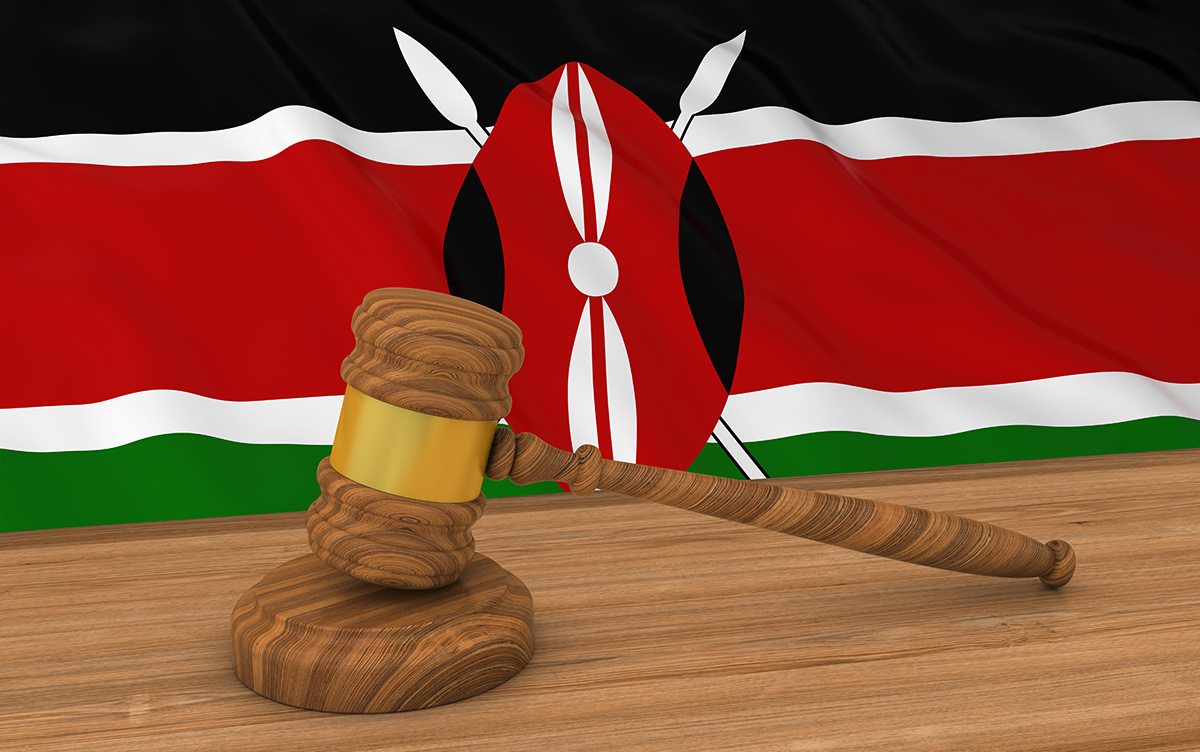
A Kenyan court has awarded two gay men charged with “unnatural sex” for engaging in consensual sexual relations a total of Sh4 million ($31,000) in compensation.
This is after the Magistrates Court in the coastal city of Mombasa ruled the authorities violated the men’s rights in obtaining evidence.
During the arrest, the two men were forcefully subjected to genital examination and HIV tests against their constitutional rights to privacy and the rights of an arrested person, including being allowed to speak with a lawyer.
Section 162 of Kenya’s penal code criminalizes consensual same-sex relations with a 14-year jail term. Prosecutors wanted the court to find the two gay men, who were arrested in 2021, guilty of the offense.
In a ruling issued on Oct. 24, the court, while awarding each of the men Sh2 million ($15,600) in compensation, faulted prosecutors’ unlawful extraction of evidence.
The Center for Minority Rights and Strategic Litigation, a local LGBTQ+ rights organization, last year petitioned the court not to admit the evidence for having been obtained unlawfully, to stop the hearing, and for the accused to be compensated.
In the petition, CMRSL cited infringement on the gay men’s right to human dignity: A ban on cruel, inhuman, or degrading treatment, the rights to privacy and a fair trial, rights of an arrested person, and violation of their freedom and security as the constitution and international law mandates.
“This provision (Section 162 of the penal code) has historically been used by the State to target and harass LGBTQ+ persons based on their gender identity and sexual orientation,” CMRSL Legal Manager Michael Kioko told the Washington Blade.
The High Court in 2019 declined to decriminalize sections of the penal code that ban homosexuality in response to queer rights organizations’ petition that argued the State cannot criminalize consensual same-sex sexual relations between adults. The constitutionality of laws that criminalize homosexuality is still contested in the appeals court, based on the argument they infringe on the rights to privacy and human dignity.
CMRSL termed the latest ruling “a crucial step toward dignity and human rights for all” while noting that the case was critical in its legal representation efforts to protect the fundamental rights of queer people in Kenya.
The Oct. 24 decision affirms the Mombasa appeals court’s 2018 ruling that struck down the use of forced anal testing in homosexuality cases by terming it as unlawful. Kenya’s National Gay and Lesbian Human Rights Commission brought the case.
The appeals court verdict stemmed from a 2015 case where police in Mombasa obtained a court order to force two gay men to undergo anal examinations and HIV testing at a local clinic after authorities arrested them and charged them with unnatural sex.
NGLHRC, in challenging the court order, argued forced anal examinations are cruel, inhuman, degrading, and breached local and international medical ethics and human rights.
The latest ruling exonerating the two gay men from prosecution is among numerous cases in which CMRSL has represented queer people in court to defend and protect LGBTQ+ rights in the country.
The case against a gay man in Mombasa charged with an unnatural act (a same-sex affair) and represented by CMRSL in court saw the matter dropped last September. The court last June acquitted transgender women in Lamu charged with committing gross indecent acts between males against provisions of the penal code.
CMRSL represented the trans women.
The group has deployed community paralegals and field monitors to monitor, document, and report queer rights violations.
“They (field monitors) work closely with LGBTQ+ community paralegals to link survivors to justice by providing legal support and connecting those to pro bono lawyers and legal aid services,” Kioko said. “On average, our monitors handle around 10 cases each month, ensuring that violations are addressed and survivors receive the necessary legal pathways to seek justice.”
CMRSL in partnership with several queer lobby groups, is also challenging the Kenya Films Classification Board in court for banning a movie titled “I Am Samuel” on the pretext it contained gay scenes that violate Kenyan law.
The Kenya Films Classification Board in 2018 also banned the “Rafiki” because it contains lesbian-specific content. Petitioners who challenged the ban in court argue the decision violates freedom of expression and other constitutional provisions.
Kenya
Kenyan LGBTQ group launches online legal aid clinic
CMRSL platform incorporates lessons learned during COVID-19 platform

A Kenyan LGBTQ rights organization has adopted a virtual legal aid platform that allows its lawyers to offer free services to queer people remotely.
The Center for Minority Rights and Strategic Litigation, which unveiled the online LGBTQ+ Legal Aid Clinic platform, attributes the move to lessons learned from the COVID-19 pandemic, including the wide use of online meetings.
“The LGBTQ+ Online Legal Aid Clinic is, we believe, the first of its kind in Kenya providing pro bono legal advice services directly to the LGBTQ community,” CMRSL states.
The online legal aid clinic connecting CMRSL advocates and queer people via Zoom, Google, and other virtual platforms is an extension of the organization’s physical legal aid clinic launched in 2020 to consolidate the volunteer lawyers’ free legal services it has been offering since 2007.
The organization recognizes the Canadian government’s financial support in setting up the two legal aid clinics.
Michael Kioko, a CMRSL advocate, told the Washington Blade the organization first thought about adopting an online legal aid clinic for the queer community during the COVID-19 period during which officials limited movement to combat the virus.
“We noted that we could reach people far across the country like Kakuma Refugee Camp where we have attended to LGBTQ refugees and also realized that we could work with more volunteer advocates across the nation,” Kioko said.
The organization has about 20 volunteer advocates who are trained on LGBTQ issues in order to be sensitive to queer clients.
Both the CMRSL’s physical and online legal aid clinics have offered services to more than 1,000 queer clients since 2020. Kioko noted CMRSL receives more than 40 cases a month through the online platform.
“The cases we receive include house evictions from homophobic discrimination as the most common, especially in Mombasa and Lamu, physical assault, and verbal abuse,” Kioko stated.
Other cases CMRSL advocates handle for the queer community are name changes for transgender women, child custody cases for bisexual women, disputes between lesbian or bisexual partners, and work to ensure a witness to a queer person’s assault stands with them until the perpetrator is convicted.
“We are also handling criminal defense cases where LGBTQ persons have been charged in court and they are two for transgender women (one case in Lamu was acquitted), we have four cases for four gay men (two cases have been withdrawn), and under civil cases in the children’s court we have four cases by bisexual women,” Kioko said.
The LGBTQ rights organization also has filed two petitions in the Court of Appeal that challenged the country’s anti-homosexuality laws.
“We are also planning to set up a legal desk by this year to deal with cases that require long-term commitment,” Kioko said.
The organization has been conducting public forums to enlighten the LGBTQ community on accessing justice through free legal help through its physical and virtual clinics.
CMRSL, however, demands any LGBTQ person seeking its services by filling a legal aid form not to be under 18-years-old. It takes at least three days for the lawyer to have a virtual consultation with a potential client, and, if necessary, would then refer them to a nearby legal clinic for physical assistance.
The organization also limits its legal assistance to individual matters that include criminal, family, employment, blackmail, assault, and discrimination cases based on sexual and gender identity or expression.
“We will not provide advice to businesses or in respect of business dealings unless the advice sought is on an issue that arises out of one’s SOGIE,” states CMRSL.
CMRSL also does not offer legal advice on financial matters, such as investment, sale, or purchase of property or other assets unless the help sought is on an issue that relates to one’s LGBTQ identity.
Kioko noted that adopting the online legal aid clinic has been impactful in helping CMRSL handle many issues almost at once and asked the LGBTQ community to embrace the virtual platform.
“The platform is more flexible and convenient both for the advocate and the client,” he said. “It is also more private and safe for the client compared to the physical legal clinic which has some privacy risks like homophobic stigma.”
CMRSL under its values and strict data protection policy assures its LGBTQ clients of treating all information submitted or collected with utmost confidentiality.
Kioko noted that the lack of smartphones to access the internet and sometimes network connection for LGBTQ people in remote areas remains a big challenge for some queer persons to use the virtual legal clinic. Lawyers and queer people can consult with CMRSL via phone calls when their clients don’t have smartphones.
-
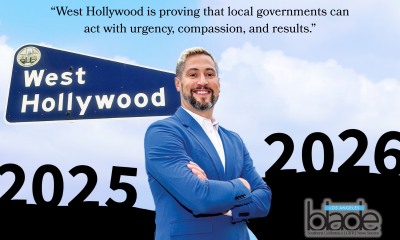
 Commentary5 days ago
Commentary5 days agoLooking back on ’25. Looking forward to ’26.
-
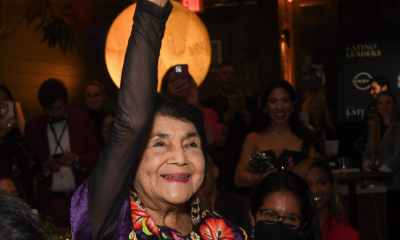
 Features4 days ago
Features4 days agoLegendary organizing activist Dolores Huerta, 95, rides in AHF’s ‘Food for Health’ Rose Parade float
-
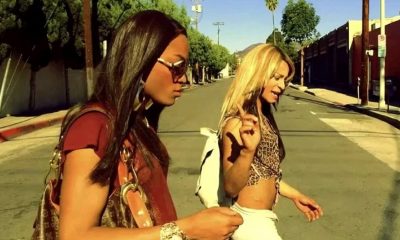
 Movies5 days ago
Movies5 days agoThe 25 greatest queer movies of the 21st century so far
-
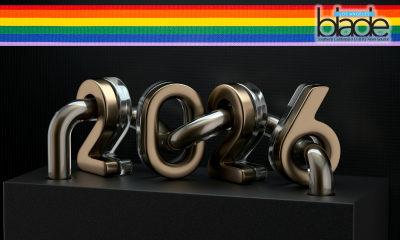
 Commentary4 days ago
Commentary4 days agoNew Year, New Queer: A polite reminder of the traditions that many of us make and many of us break that are well worth revisiting this particular year
-

 Tarot Readings and Astrology3 days ago
Tarot Readings and Astrology3 days agoJanuary is calling for us to be grown-ups in Intuitive Shana’s New Year tarot reading
-

 Books2 days ago
Books2 days agoA look back at the best books of 2025
-

 Parks & Recreation5 days ago
Parks & Recreation5 days agoFor more than two decades, Los Angeles Neighborhood Land Trust has worked to address park inequities
-

 LGBTQ+ Youth Mental Health2 days ago
LGBTQ+ Youth Mental Health2 days agoLaw expanding mental health resources for LGBTQ+ youth has gone under effect
-

 Television17 hours ago
Television17 hours agoThe ‘Stranger Things’ coming out scene: The reaction and the relevance



